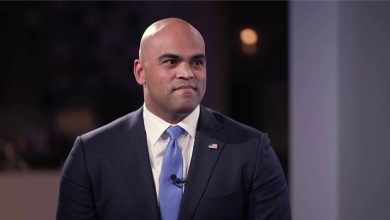Judge denies delay in Trump’s sensitive records case
As the 2024 presidential election approaches, former President Donald Trump finds himself entangled in a complex web of legal cases. U.S. District Judge Aileen Cannon’s recent decision not to postpone his trial over handling sensitive government records until after the November 2024 election adds another layer to this intricate situation.
Judge Cannon’s 9-page decision maintains the May 2024 trial date for the case involving Trump’s handling of government records. This decision, however, is not set in stone, as she plans to revisit the issue during a conference on March 1, after determining how classified information will be used in the trial. The original trial date, set just weeks before the Republicans select their presidential nominee, has raised eyebrows given its potential impact on the election.
In a separate case in Washington, D.C., special counsel Jack Smith charged Trump with four counts related to efforts to prevent the transfer of presidential power after the 2020 election. Trump has pleaded not guilty to all charges in both cases. The trial for the election-related case is scheduled to begin on March 4, creating a logistical challenge for Trump and his legal team who argued that the deadlines in the South Florida case are “unworkable.”
In her order, Judge Cannon acknowledged the multiple criminal proceedings involving Trump, including a case brought by the Manhattan district attorney set to begin on March 25. She noted the overlapping schedules of these cases with the deadlines in her court, posing challenges for Trump’s adequate preparation for trial.
Trump faces 40 counts from his handling of government records, with 32 charges relating to alleged unlawful retention of national defense information. These documents, recovered from his Mar-a-Lago resort, include highly sensitive records concerning U.S. and foreign military capabilities and activities.
Trump’s defense team has raised issues with the speed of evidence turnover by prosecutors and the timeframe for establishing a secure facility for reviewing classified evidence. They have also requested revisions to the schedule for submitting pretrial filings under the Classified Information Procedures Act (CIPA).
Prosecutors, however, have objected to any postponement, noting that they have turned over a substantial amount of evidence, including over 1.2 million pages and numerous classified materials. Special Counsel Smith emphasized the availability of the majority of classified material to the defense.
Judge Cannon recognized the “exceedingly voluminous” nature of the material in the case, along with unforeseen circumstances, necessitating a change in the July-set deadlines. She emphasized the need for defendants to have sufficient time for discovery review, balanced against the public’s right to a speedy trial.
Cannon also highlighted the litigation under CIPA regarding classified material, which requires significant court review. Her skepticism about the trial schedule’s feasibility alongside other criminal proceedings Trump faces was evident during a hearing on the trial delay request.
In addition to the federal and state charges in Washington and New York, Trump also faces charges in Fulton County, Georgia, related to alleged attempts to reverse the 2020 election outcome. Both Walt Nauta, an aide to Trump, and Carlos De Oliveira, the property manager at Mar-a-Lago, have been charged in the documents case for allegedly obstructing the Justice Department’s investigation. They have pleaded not guilty to all counts.
The unfolding legal drama presents a complicated backdrop for Trump as he considers another presidential run. The overlapping trials and multiple charges in different jurisdictions create a challenging scenario, not just for his legal defense but also for his political ambitions. The decisions made in these cases, and the timing of the trials, could significantly influence the political landscape leading up to the 2024 election.



